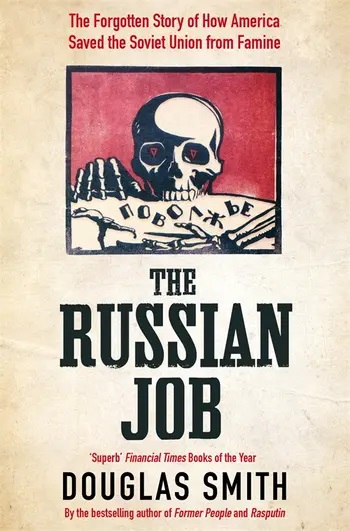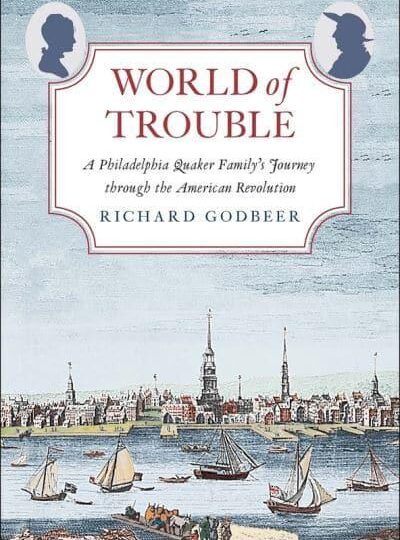The American soldiers who arrived in Russia to assist with switching the Bolshevik overthrow of 1917 did essentially nothing to change history, however cast as radical antagonists, they were helpful to Soviet advocates accused of revamping it. In “The Russian Job: The Forgotten Story of How America Saved the Soviet Union From Ruin,” Douglas Smith tells the momentous story of an alternate, to a great extent neglected at this point boundlessly more viable mediation.
Somewhere in the range of 1921 and 1923, the United States, acting through Herbert Hoover’s American Relief Administration, provided food and other guide to in excess of 10 million individuals got up to speed in the starvation — made by war, unrest and the Bolshevik attack on the proletariat — then seething in the previous Russian realm. The ARA worked, Mr. Smith tells us, “across 1,000,000 square miles of domain in what was the biggest philanthropic activity ever.”
- ADVERTISING - continue reading below -
Dubious of, and humiliated by, help from such a politically badly designed source, the Kremlin acknowledged the ARA’s assistance just hesitantly and, when the emergency was finished, “started to eradicate the memory of American foundation,” Mr. Smith composes. “What it couldn’t delete, it tried to traditionalists mutilate into something monstrous” by portraying the ARA as a home of spies. For the overwhelming majority of the a huge number of Russians who had worked for the ARA, their prize was oppression.
The harm done to Hoover’s standing in America by the Great Depression might assist with making sense of why this episode is so semi-secret in the U.S. today. In any case, something different might be at play. Mr. Smith contends that the ARA may “potentially” have forestalled “the breakdown of the Soviet state.” Did the times of socialist barbarity that followed cast a shadow over what was an exceptionally fantastic American signal ?
All things considered, in a previous history of the ARA’s work in Russia, “The Big Show in Bololand” (“Bololand” being the place that is known for the Bolsheviks) — a review that Mr. Smith properly recognizes as conclusive — Bertrand Patenaude portrays how in 1921 Karl Radek, a main Bolshevik, “appeared to take an exceptional joy” in let Western guests know that the system would get by: “Just starvation casualties pass on from starvation.” Radek (who might accept his proper recompense in the Gulag in 1939) probably won’t have been off-base. Guaranteeing that modern specialists in the significant populace places were taken care of was fundamental for the endurance of Lenin’s new request. In the event that that implied taking food from a proletariat the Bolsheviks loathed as socially in reverse, so be it. To be sure, their misfortune was an open door. “It is definitively now,” Lenin stated, “when in the starvation locales individuals are eating human flesh, and the streets are covered with hundreds in the event that not a large number of bodies,” that the Soviet authority ought to begin the efficient confiscation of one more hazardous remnant of old Russia — the congregation. Thus it did, for the sake of starvation alleviation. The amount of what was seized was “transformed into bread,” Mr. Smith calls attention to, “is unknown.”
Lenin’s reference to “hundreds in the event that not a huge number of carcasses” was putting it mildly. As indicated by Soviet estimates, about 30 million confronted starvation. The impacts of the starvation were gushing out over into the Bolshevik fortresses and, no matter what Radek’s grandiosity, could as of now not be held back. Accordingly, Lenin allowed components of the market to slip once again into the public economy and cut back on grain orders from the working class. In July 1921, the author Maxim Gorky was permitted to convey an interest for help. Hoover, who had been regulating food-aid ventures in Europe since not long after the German attack of Belgium, could have been a wild anticommunist, at the same time, as Mr. Smith notices, he “realized what must be finished.”
The drive to help was authentic and unselfish; the outcomes, arranged by Hoover with the hierarchical assurance for which he was at that point amazing, were unprecedented. In Mr. Smith’s not nonsensical perspective on the quantity of lives saved, “a gauge of in excess of ten million doesn’t appear to be overstated,” an accomplishment made even more great by the modest number of Americans — never more than 200 all at once, and under 400 altogether — who wound up in Russia, frequently in towns and urban communities a long way from anyplace however never far enough from end of the world. If the expression “great Samaritan” is to matter, it’s what a considerable lot of these men were, putting their lives in danger in the midst of sickness and confusion, through scenes so horrible they were exceedingly difficult to bear: “I stroll with my eyes on the ground,” thought of one.
Be that as it may, great isn’t really equivalent to righteous. Bololand was the new extraordinary obscure, and a considerable lot of the ARA’s Americans were drawn there by a feeling of experience as well as a desire to help — various them had initially gone to Europe to partake in the Great War — and truly wanted to get back. “At any point attempting to kill individuals might sound more energizing than attempting to keep them alive,” one ARA man made sense of, “yet don’t you trust it’s so.” Amid the repulsiveness — very much depicted by Mr. Smith, who utilizes contemporary sources (one American, after showing up in Samara, passes “two canines battling in the road over a somewhat eaten cadaver”) — there were pretty young ladies, hard celebrating and, for some’s purposes, an opportunity to gather up resources at the deal costs that disturbance left afterward.
The ARA left after the most exceedingly terrible was past, yet starvation got back to the U.S.S.R. under 10 years after the fact, a result of collectivization changed, in Ukraine, to decimation. Millions passed on, however there were no calls for help from the Kremlin — just dissents.
- ADVERTISING - continue reading below -
While Mr. Patenaude’s volume stays conclusive, its length will be an impediment to some. Mr. Smith, a biographer of Rasputin and the writer of “Former People” — on the destiny of the blue-bloods who remained on in the new Soviet state — has, in “The Russian Job,” created an elegantly composed record of a story that shouldn’t have passed into haziness. Less complete than Mr. Patenaude’s book, Douglas Smith’s book is still substantially more than a presentation.
The Russian Job by Douglas Smith (Farrar, Straus & Giroux) contains 303 pages.
Rating : 4 Stars
Views: 1



